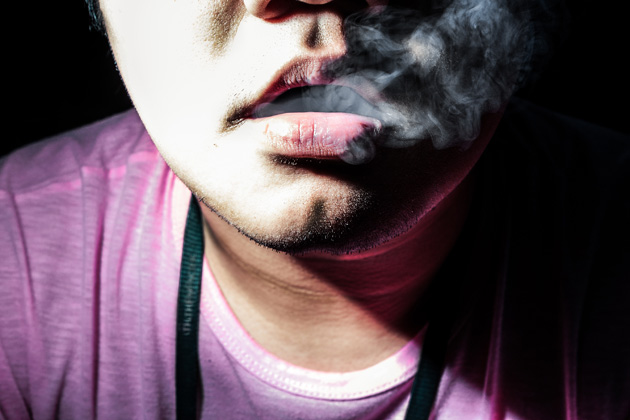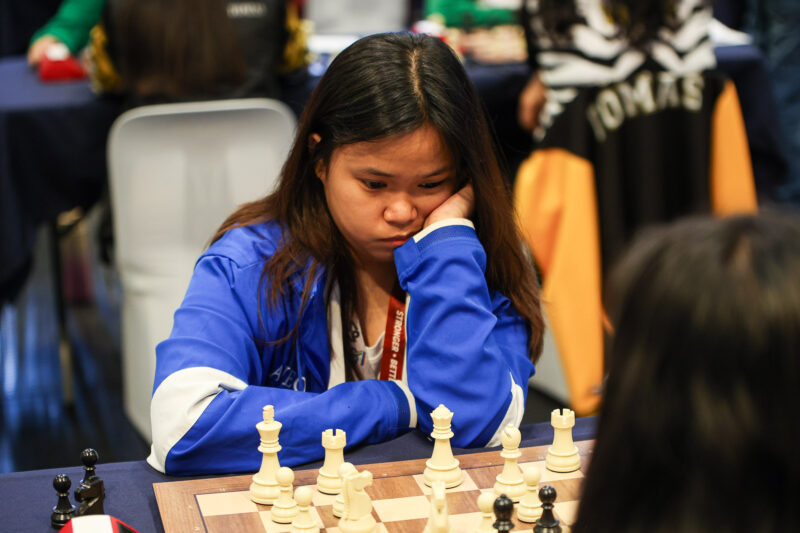Aside from being used for recreational—albeit illegal—purposes, marijuana has long been utilized in the field of medicine. It is known for its function as an organic alternative to many of the synthetic drugs out in the market today.
The mention of marijuana’s medicinal uses often presages any discussion about the campaign to legalize it. Nevertheless, those who are against the drug’s legalization argue that its harm to one’s health is greater than its benefits—not to mention the fact that it is often mistakenly thought to be an addictive substance.
The Ateneo is not free from its own share of marijuana users. While some students are apprehensive of its consumption, there are those who see nothing wrong with the act of smoking marijuana and even support its legalization.
Hence, a personal choice sublimates into the realm of political discourse and individuals take sides. Those who abide by the law and those who seek to change it are asking each other the same question: “What is all the fuss about?”
Lawful good
Prior to widespread illegalization, the drug was used in various ways, from mild sedation to spiritual purposes. In fact, during the 1800s, hemp was grown as a primary agricultural crop.
However, the drug became illegal in the United States soon during the early part of the 20th century. It was classified as a Schedule 1 drug, which meant that it possessed a “high potential for abuse.”
Marijuana is illegal in the country as well. According to the Comprehensive Dangerous Drugs Act (RA 9165), promulgated as recently as 2002, the sanction for the possession of illegal drugs—which include marijuana—may last from 12 years to lifetime imprisonment and a fine ranging from P300,000 to P10,000,000, depending on the amount possessed.
The Ateneo has taken measures to enforce drug control on campus through random drug testing, as mandated by RA 9165. Considering that some students in college may not yet be of legal age, Section 66 of the act states that first time offenders between 15 to 18 years old may be placed under rehabilitative surveillance or made to do community service.
Student culture
When asked how they first encountered the drug, most users would attribute the event to curiosity. “I believe you have to try everything at least once,” says Andrew*, who has been smoking the drug since high school.
Some believe that marijuana use does not get in the way of other aspects in their lives such as family or academics. “Absolutely not,” says Joseph*. “[I smoke marijuana] pag may long weekend or I go out of town, whenever it’s available or convenient to do so. Pero if I have papers or homework, I don’t do that.”
They are quick to add that enjoying the drug also entails a degree of control. “I honestly believe that my life is better with marijuana use as long as I’m not dependent on it,” Andrew shares.
Jayeel Cornelio, Sociology and Anthropology Department faculty member, frames the discussion of drug culture among students to how affluence is manifested in an urban environment.
“The craving for enhanced sensing appears to me to be a lifestyle choice that clearly mirrors consumerism, the enjoyment of feelings and the search for identity that can be regrettably elusive in our contemporary environment,” says Cornelio. “Modernity has taken the emotions and aesthetics from human experience. The use of drugs as a lifestyle choice brings them back.”
When students were asked if marijuana should be legalized, they responded in the affirmative, provided that the drug is made accessible with government regulation.
“That’s gonna deter drug cartels, for example. Kasi, if you don’t legalize it, it’s human nature to do that,” says Joseph. “How I see it is, whether or not it’s legal, people are still gonna consume it.”
Consuming taboo
So is marijuana’s negative reputation merely brought about by the debate surrounding both its pleasurable effects and its health risks, or is it simply a result of a shouting match across a generation gap?
It seems that the answer cannot be simplified through mere dichotomies.
Arjan Aguirre, a Political Science Department faculty member, explains how marijuana is considered taboo by distinguishing its effects from other substances.
“The idea there is that it will totally distort your reality,” Aguirre says, mentioning the drug’s hallucinogenic effects.
For Cornelio, however, the reputation of marijuana lies not in explicit public perception of the drug, but the connotations that comes with it, such as “gangsterism or juvenile delinquency.” He continues, “Marijuana use has also been associated with the capriciousness of upper class adolescents. Overall, the use of marijuana is problematic not just because it is deemed addictive and all that, but because it is associated with bigger social ills.”
“The idea there is that people today have this wrong notion of freedom,” Aguirre explains, introducing a different perspective on the issue.
“Freedom from is the absence of any external force, [similar to an] unbridled exercise of your will. Freedom to, on the other hand, does not depend on the externalities of your exercise of your freedom or will. Freedom to emphasizes the very direction of your action. That’s why the usage of marijuana itself should always be justified by these people,” says Aguirre. He explains that the notion of freedom to, such as the freedom to smoke marijuana, pertains to a kind of responsibility, and that, therefore, the distinction between these two perceptions of freedom “affects the very discourse.”
Both Aguirre and Cornelio assert that the Philippines is not ready for marijuana legalization.
“The negative effects… supersede the positive effects,” says Aguirre, weighing its medicinal properties to the purported damage it does to the brain.
Cornelio is more speculative as to why the Philippines probably isn’t ready for legalization. He points to the Church’s huge influence in Philippine society. “Religion will look down on it. I can already hear the Church leaders lamenting the ‘moral decay’ of Philippine society.”
Cornelio says, “What is necessary is a strong legal framework by which marijuana use can be cultivated, delivered, monitored, and controlled—and we certainly do not have a strong state to do these things.”
The science behind the smoke
Many believe that the contentions behind the debate regarding marijuana’s legalization lies in weighing its pharmaceutical properties, its pleasurable effects and the bodily harm it causes.
According to Dr. Norman Marquez, head of the Health Sciences Program, even marijuana’s medicinal properties are debatable. “There are now other available drugs that can deliver the same positive effects of marijuana with lesser side effects.”
Contrary to popular belief, smoking marijuana may not be healthier than smoking tobacco cigarettes. Inhaling any form of smoke into the lungs is still unhealthy and can lead to lung disease.
Another common misconception is that the plant used for smoking and the plant used for industrial purposes are the same. “Marijuana is specifically the sativa variety that is rich in THC [Tetrahydrocannabinol], the psychoactive substance responsible for the effects of smoking or eating marijuana. Industrial hemp comes from another variety of cannabis that is low in THC and, therefore, does not give the side effects similar to those associated with marijuana use,” clarifies Marquez.
That distinction alone affects the debate on marijuana and may determine what exactly can be regulated or banned in the event of legalization.
Repercussions
It seems that the contentious arguments surrounding marijuana’s legalization will not come to a halt unless there is proper education on the matter.
“You have the people who smoke marijuana and who are acquainted with marijuana and the majority who aren’t. So they’re gonna say, ‘Oh, it’s bad, it’s evil, it’s drugs, whatever,’ without actually knowing the facts behind marijuana. So there’s not enough awareness or consciousness,” says Andrew. “The key is moderation, and moderation [should be considered as a factor] when you educate the people.”
Considering the complexity of the issue, from the physical to the psychological to the social dimensions, any hasty interpretation of the information on the matter is bound to be quite arbitrary. However, Aguirre mentions that the issue should not be met immediately with “antagonism.”
Cornelio agrees. “The moral implications of this [trend towards legalization], I must admit, demands careful reflection and not immediate judgments.”
*Name has been withheld upon request.








